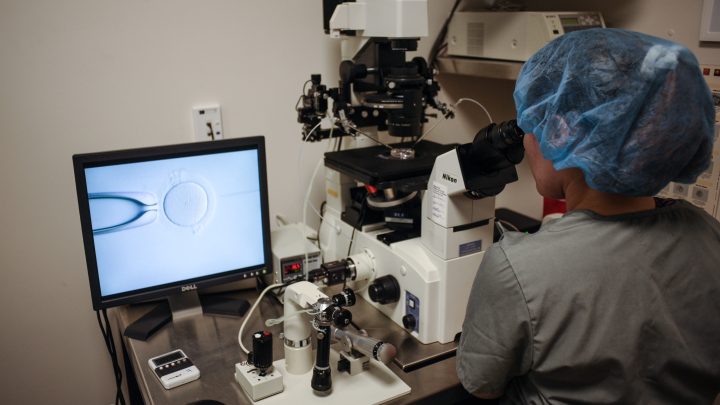
The pandemic delayed milestones in millennials’ lives
The pandemic delayed milestones in millennials’ lives

Olga Rouderfer has never really pictured herself having kids. But during the pandemic, stuck inside her studio apartment in New York City, she had a lot of time to think. And she started to get a little anxious.
“It almost feels like two years of your life has disappeared; nothing really happened. It’s just a bit of a gap. And being a woman and constantly being reminded of that biological clock ticking,” she said. “Yeah, having lost that time, I think it really did just hit me.”
It can be overwhelming to take stock of everything we’ve lost during the pandemic. Of course, more than 1 million Americans died as a result of COVID. But some of the other losses — like lost time — are harder to quantify. For millennials, the years lost are ones traditionally marked by milestones.
Rouderfer, who’s 35 years old, was dating a man at the beginning of the COVID era. But it was more or less one of those pandemic relationships, she said: two people agreeing to create a bubble because they live close together and enjoy each other’s company. They’re not dating anymore.
“We were just in such a lockdown for such a while. And when finally things started opening up, I felt like this was the time to take it seriously,” she said.
To her, “take it seriously” meant freezing her eggs. She’s on her second round of retrieval. And though she still doesn’t know if she wants kids, she thinks she’ll feel a big relief once she’s banked enough eggs. Some of her friends have taken the same step.
So have many other women. Dr. Alan Copperman, director of reproductive medicine at Mount Sinai Health System in New York, said he’s seeing more than twice the number of women freezing their eggs now than before the pandemic.
“We all lost a couple years to the pandemic. And I think that those two years actually are driving a lot of people to make up for lost time and take advantage of the egg-freezing technology that will allow them to maybe get that time back on the back end when they’re ready to build that family,” he said.
For most people, building a family starts with dating. And more than 60% of single-and-looking adults say dating has become harder during the pandemic, according to a Pew study that came out this year. Remember, at the beginning of the pandemic, meeting new people was actually kind of scary, so in-person dating took a dive.
“Just kind of reducing that mixing and mingling, if you will, has some implications for down-the-road partnership formations,” said Brandon Wagner, a professor of sociology at Texas Tech University.
Marriage rates have gone down. And the rates from 2021 don’t make up for all the weddings that were canceled. Because besides the interruption in dating, when the world feels emotionally and financially uncertain, people delay taking big life steps.
“It’s fair to make those connections between economic precarity and just like the uncertainty of job loss,” Wagner said. “Like, we know that’s associated with consequences for marriage and partnership.”
The last period of widespread uncertainty was the Great Recession. Fertility rates plummeted and never rebounded, even after rising slightly last year. And that’s had economic consequences; it’s one of the reasons our labor force is likely to continue shrinking and aging.
But for individuals, there are emotional costs. Especially when the cause — a once-in-a-lifetime pandemic — is totally out of your control.
“There’s something very psychologically potent about the number of years you’ve been alive and whether you have done certain things by various milestones,” said Martie Haselton, a professor of social psychology at the University of California, Los Angeles. “So, if you were already feeling like you hadn’t achieved what you wanted to and you’re looking at your peers and they had, then I think that might be very anxiety producing.”
People of a certain age, especially women, feel pressure to hurry through their careers and quickly form partnerships and families so they can fit it all in, Haselton added. And the pandemic has been a story of hurry up and wait.
There’s a lot happening in the world. Through it all, Marketplace is here for you.
You rely on Marketplace to break down the world’s events and tell you how it affects you in a fact-based, approachable way. We rely on your financial support to keep making that possible.
Your donation today powers the independent journalism that you rely on. For just $5/month, you can help sustain Marketplace so we can keep reporting on the things that matter to you.












